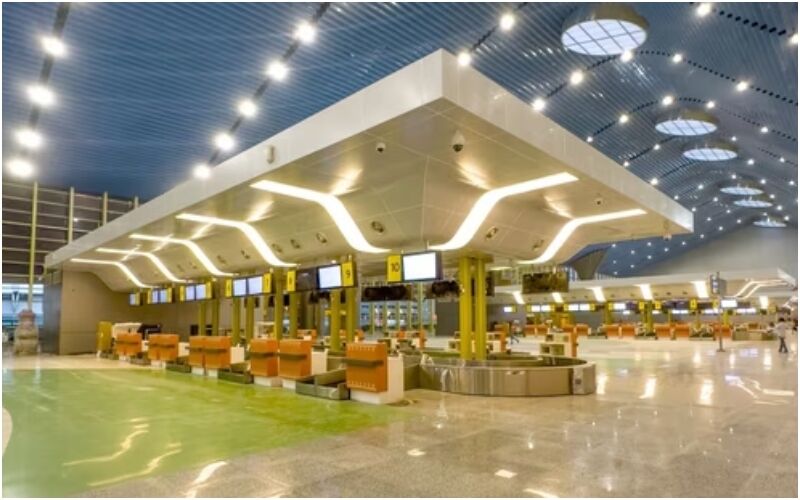SHOCKING Chennai-Based YouTuber Sets Up Shop At Airport For A Sri Lankan Gold Smuggling Syndicate, Earns Rs 3 Crore In Two Months
In a shocking case from Chennai, a souvenir shop by the airport has been exposed as a front for a Sri Lankan gold smuggling syndicate

A recent investigation at Chennai airport has unveiled a shocking gold smuggling operation disguised as a souvenir shop. The New Indian Express reported that Mohammed Sabir Ali, the shop's owner, was enlisted by a Sri Lankan gold smuggling syndicate to aid in their illegal activities. Ali, along with seven of his employees, has been arrested by Customs for smuggling a staggering 267 kg of gold worth ₹167 crore over a span of two months.
The scheme revolved around a retail souvenir shop named Airhub, strategically located in the departure lounge of Chennai airport. Sources reveal that a syndicate member residing in Abu Dhabi paid ₹70 lakh to secure the shop’s lease for Ali. Despite having no prior retail experience, 29-year-old Ali was targeted for recruitment after the syndicate discovered his YouTube channel, shoppingboyz. Recognizing an opportunity, the syndicate suggested Ali open a shop at the airport to facilitate their smuggling operations.
The smuggling operation was meticulously planned and executed. Ali and his employees were trained by the syndicate to use the shop as a conduit for smuggling gold. The modus operandi involved receiving gold from transit passengers and then passing it on to receivers outside the airport. This intricate process allowed Ali and his team to earn a hefty commission of ₹3 crore over two months. However, the operation was exposed on June 29 when a vigilant Customs official, suspicious of one of the employees, discovered 1 kg of gold powder at the shop. This led to the immediate detention of the employee and the transit passenger involved, followed by the arrest of Ali and the remaining staff.
The case has raised significant concerns about airport security protocols. The Customs department is now probing how all eight individuals obtained identity cards from the Bureau of Civil Aviation Security (BCAS), which typically exempts holders from security checks. These identity cards, ostensibly issued for contract employees, played a crucial role in the syndicate’s ability to operate undetected for such a prolonged period. The investigation continues as authorities seek to uncover the full extent of the smuggling network and its operations.
Image Source: Twitter
_2025-1-14-6-12-28_small.jpg)
_2025-1-14-6-23-6_small.jpg)
_2025-1-14-6-29-53_small.jpg)
_2025-1-14-10-41-6_small.jpg)
_2025-1-15-7-18-31_small.jpg)
_2025-1-15-7-38-30_small.jpg)